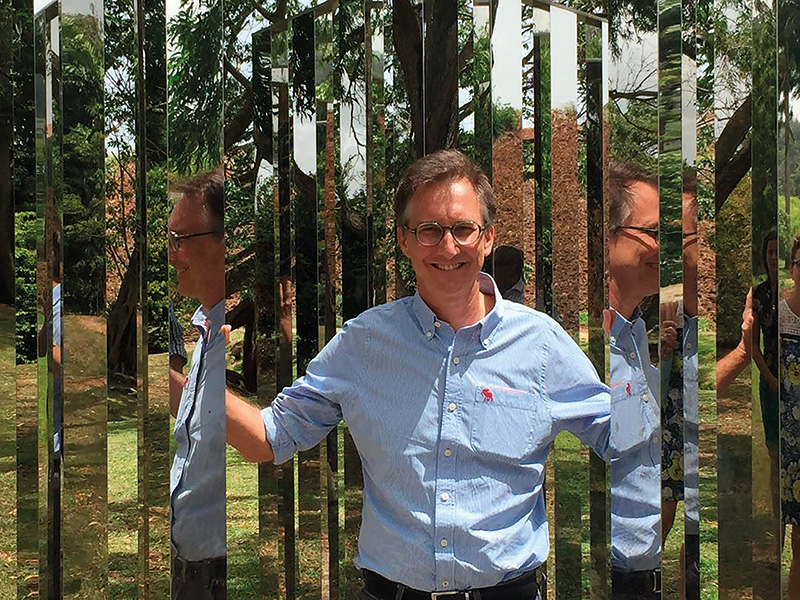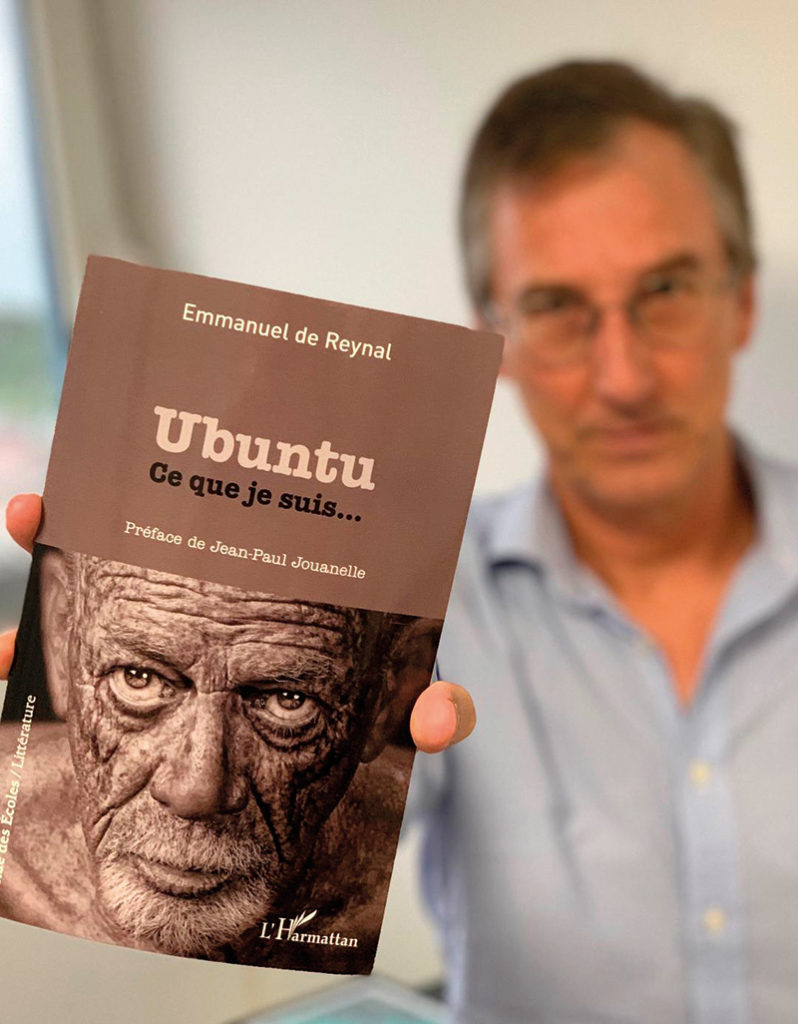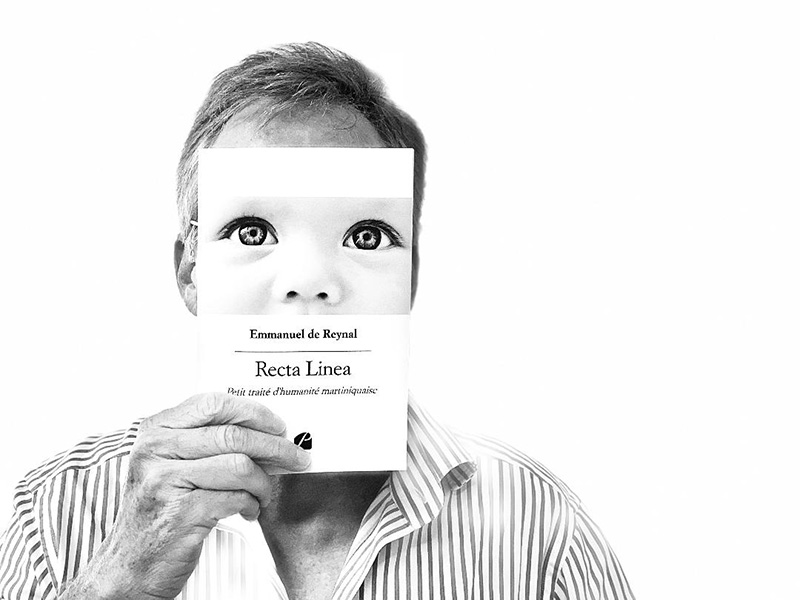
Emmanuel de Reynal, actively involved in the economic and social structure of Martinique, published “Ubuntu” in 2020, followed in 2021 by “Recta Linea,” a novel about the multiple forms of cultural heritage that enrich his native island.

ONAIR – “Ubuntu” creates a portrait of historic characters to show at what point their personal stories are rich and diverse…
Emanuel de Reynal – Yes, “Ubuntu” is a Bantu word that signifies “I am what I am thanks to what you are.” This represents a philosophy of fraternity and the reconnaissance of others. This book expresses the idea that those we confront are not representatives of groups, but complex, singular individuals. I wanted to prove that as part of the same genealogy, there are multiple branches: no one is the fruit of one single line. Since the birth of homo-sapiens approximately 300,000 years ago, we create one long, complex chain.
OA – In “Recta Linea,” you use a specific literary device: when the narrator, Gabriel, returns to his old house, he receives letters from a mysterious correspondent…
EDR – Gabriel is a little like me. In spite of our differences, there is certainly a veiled autobiographical reference. With this novel, I wanted to broaden the scope of “Ubuntu” by integrating the history of Martinique into that of the world, since the Big Bang. Above all, it is a book of transmission: I especially want the next generations to learn more about our geography, our history.

OA – You say that Martinique, in spite of its difficulties, represents a paradigm?
EDR – Absolutely. Martinique is a small island which is a crossroads of many influences: European, Asian, Levantine, Indian, Chinese. Of course, not everything is perfect in Martinique. The process is far from complete. There is a lot of work to be done to reinstate a more sincere dialogue. For example, after the major social conflicts of 1998, the situation was blocked. The heads of businesses and unions no longer spoke to each other. However, a new initiative was fruitful: working groups met for over a year. They came to an agreement on shared issues. Those business conflicts in Martinique have been divided by 1000 since that time.
OA – Why did you turn to writing books?
EDR – Books have an extremely valuable quality— especially in this day and age of social media. They instill a different rhythm; they take time to read. Literature and narratives are both fundamental for a society to exist. However, we must absolutely con- cur on a collective narrative, and, at my modest level, that’s what I am trying to do. Shortly I will publish a new book, which is exactly that, a dialogue. You will see that I am a very different individual than my interlocutor, and we are not in agreement about anything. And yet, we take the time to listen, share ideas, spend time together. Books allow us to get past clichés and labels.
Autor : Baptiste Rossi

